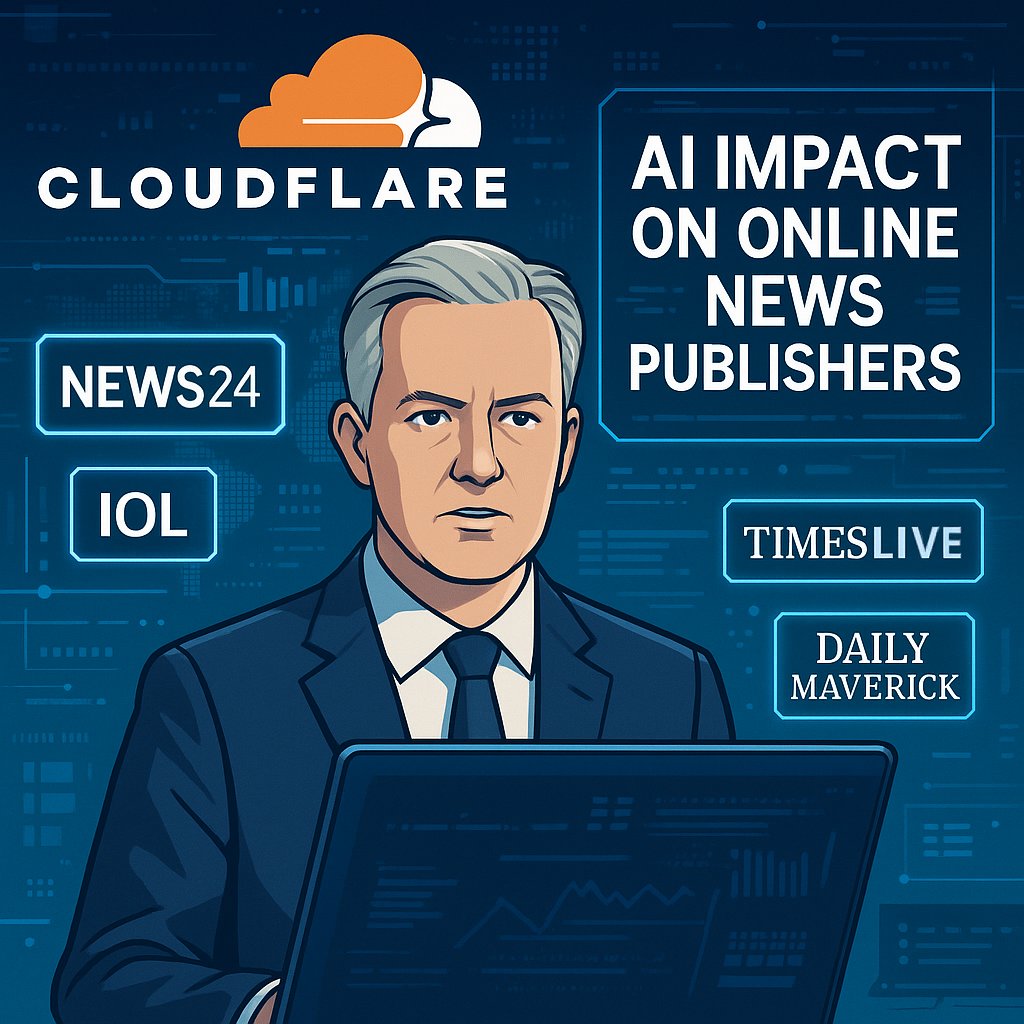Image created by AI
Online Publishers in South Africa Under Threat Amid AI Evolution
Cloudflare, under the leadership of CEO Matthew Prince, is sounding the alarm on the challenges faced by original content creators, including prominent South African online publishers such as News24, IOL, TimesLive, and Daily Maverick. The digital landscape is shifting significantly from being search-driven to AI-driven, which poses substantial risks to these conventional news platforms.
Historically, publishers have relied on search engines like Google to drive traffic to their websites. Initially, Google would direct a visitor for every two pages it indexed. The dynamic, however, has drastically changed; now it takes 15 scrapes to get one site visit. This shift is due to Google’s advanced AI capabilities which now provide answers directly on the search page, reducing the need for users to click through to external sites.
This evolution in search technology means a staggering 75% of search queries are resolved without users needing to leave Google’s ecosystem. This is a concerning trend for publishers who depend on page views for ad revenue and subscription conversions. Google’s recent development, AI Search, exacerbates this as it does not offer links to external sites, hence keeping users within its framework.
The interaction ratio reveals even more dire statistics for AI sites: OpenAI records around 1,500 site scrapes for each visitor it sends, while Anthropic sees about 6,000 to 1. These figures paint a bleak future where news sites receive diminishing returns from their content expenditure.
In March 2025, the Interactive Advertising Bureau (IAB) South Africa's report indicated a significant decline in readership across several major publications over the past two years, with three experiencing a traffic drop over 50%. Given current trends and AI’s role in content aggregation and consumption, these numbers may continue to worsen without intervention.
Prince criticized the unregulated use of content by AI models, which often scrape and learn from data without compensating the original creators, undermining the financial foundation of content-driven enterprises. In response, Cloudflare proposes a new model of operation. It is working towards safeguarding content creators by initiating protocols that block AI crawlers unless they offer compensation, effectively making paid partnerships between AI companies and publishers a norm.
By establishing agreements that give AI platforms exclusive access to premium content, publishers can create a scarcity that increases the value and demand for their material. However, the looming challenge remains the speed at which regulatory and legal frameworks react to these developments.
As AI technology grows more sophisticated, Prince remains optimistic about the future of content creation. He envisions a marketplace where high-quality, original content holds significant value and exclusivity, appealing to thoughtful AI companies prepared to invest in sustainable and equitable content use.










